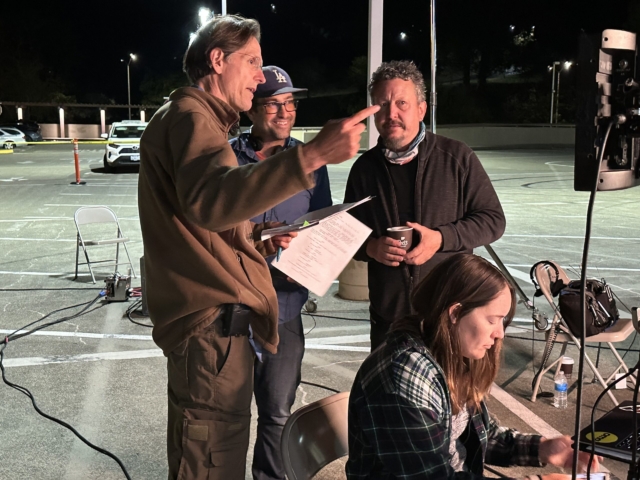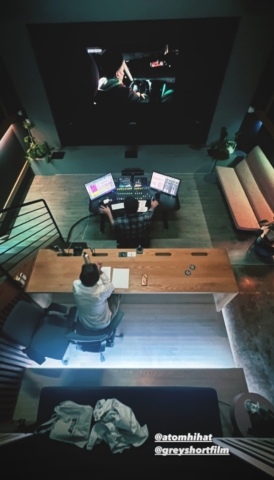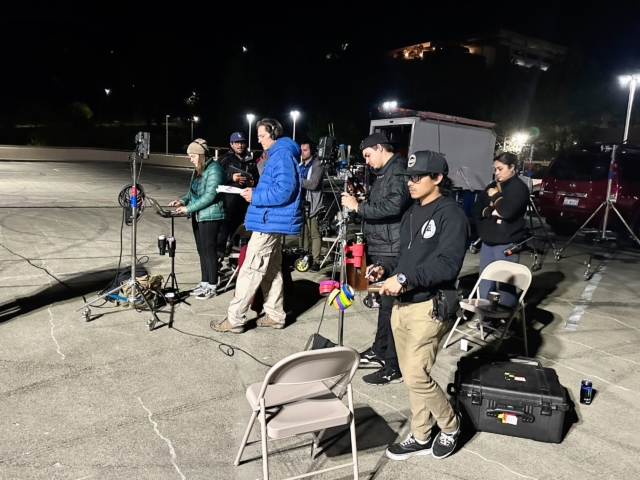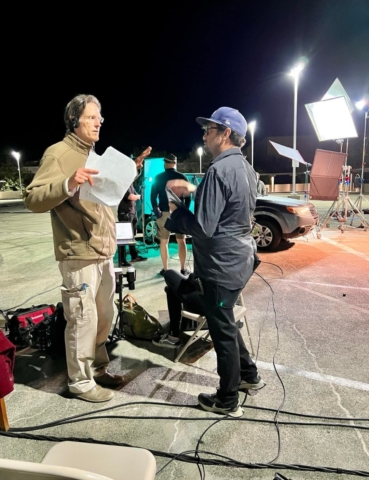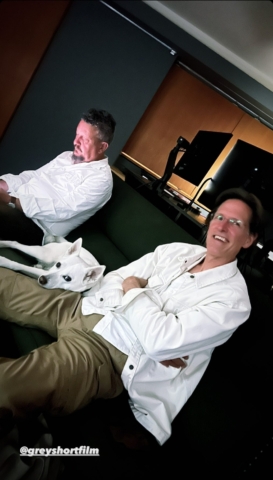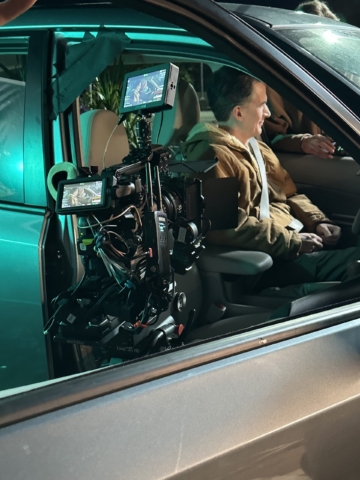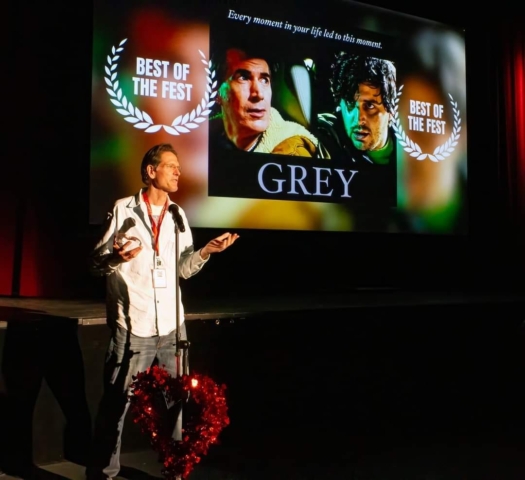Films
Now streaming on Omeleto.
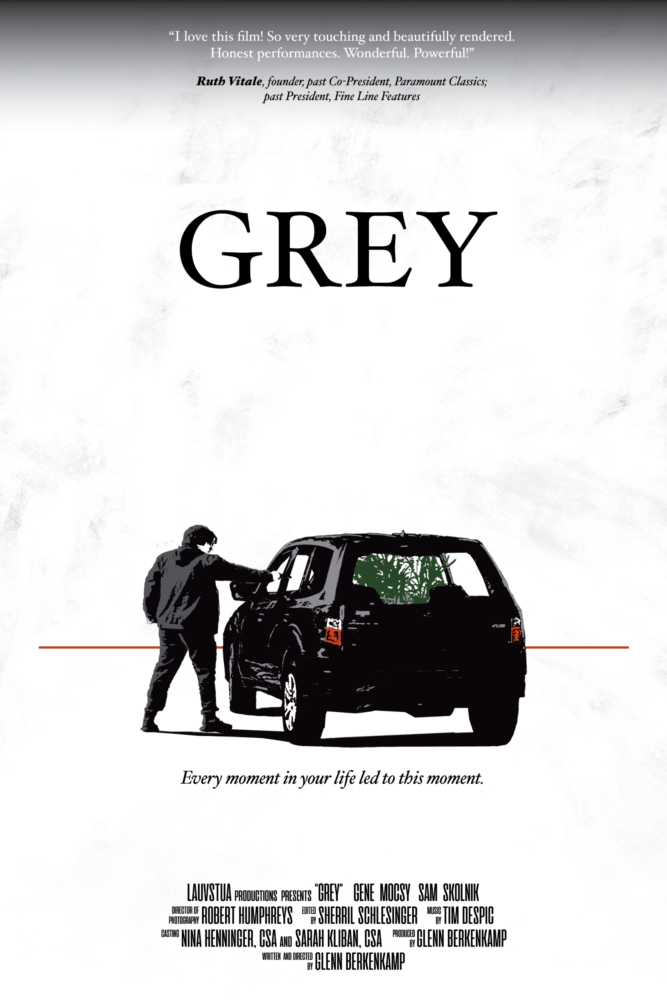
GREY PRODUCTION & POST-PRODUCTION STILLS
LOGLINE
A mindfulness teacher is put to the test when he is confronted by an armed robber.
ABOUT THE FILM
Grey is a film about fate, second chances, and looking deeper at those in need. It is an invitation to view life through a wider lens. A movie with a message, but more so, a movie with a heart. Empathy and compassion is at its forefront. In an increasingly divided world, Grey helps us to look for our commonalities, to breathe as one. Through the conflict and resolution that plays out on the screen, we, ourselves, get to reflect on our own lives, choices and reactions as we witness a robbery gone right.
FAQs
1. Why did you make Grey?
That’s a two part answer. One, I wanted to put something beautiful into the world. And two, as a longtime screenwriter, who was often told, “You have such a unique voice, you should direct your own work,” I wanted to see how directing suited me; how I liked doing it, and how well I could do it. This would then determine my next steps regarding a feature film I had written.
2. So what did you discover? Did you like directing? Are you suited for it?
Yes. And yes. I’ll be moving on to my feature.
3. How did you arrive at the title “Grey”?
As I was writing the screenplay, the character said his name was “Grey Alberts.” As I continued writing, I realized Grey was the perfect title – as it spoke to the grey areas of life.
4. What was the origins of the story? Did you or someone you know experience a robbery situation like we see in the film?
No. It’s fiction. It came to me one evening while driving. I then wrote it later that night and put it away. Seven years later, we made the movie.
5. What was the biggest challenge you faced during production?
I wouldn’t say there was one specific challenge. Along with being the director, I was also the producer, so there was quite a workload and learning curve – and a tremendous need for sustained focus, clarity of vision, and trust in the ever-unfolding process.
6. What was it like working with actors?
I loved it. Years ago, I studied acting quite extensively. So it took me back to that time. Our actors, Gene Mocsy and Sam Skolnik, were wonderful. And of course, very talented.
7. The film is beautifully shot. How did you select your cinematographer, Robert Humphreys?
Thank you. I was an admirer of Rob’s work and it turned out that my editor, a longtime friend, knew him and put us in touch. And, as fate would have it, he lived only twenty minutes from the location.
8. What did you enjoy most about the moviemaking process?
The collaboration. The learning. Seeing my writing brought to life and the vision come to fruition. The grace involved. Realizing I was suited for directing. And I greatly enjoyed the post-production process.
9. What advice would you give to other first-time filmmakers?
As best you can, surround yourself with people who are good at their job and are also pleasant to be around. Keep your ego small, your heart open, and your vision clear. Trust your gut and always remain open to inspiration. Also, actors can bring a great deal, as can others involved in the process, but you must take the time to craft your screenplay into the absolute finest possible condition you can. Don’t. Be. Lazy.
10. What is the biggest takeaway you’d like viewers to receive from Grey?
The understanding that one never knows what another is going through. That we always have choices as to how we respond or react. And, that they were entertained and moved.
LAUVSTUA PRODUCTIONS
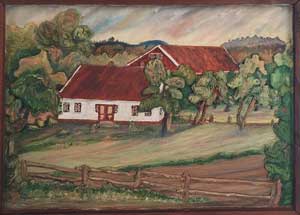 Lauvstua Farm is located in southern Norway. It is the farm Glenn’s mother grew up on. It is rich with family history and provided a location for many progressive ideas to take root and be shared throughout the 1930s, 40s, and 50s. In creating Lauvstua Productions, Glenn has honored his family lineage, which is one of love, compassion, and deep, thoughtful, solution-based living for the benefit and betterment of all.
Lauvstua Farm is located in southern Norway. It is the farm Glenn’s mother grew up on. It is rich with family history and provided a location for many progressive ideas to take root and be shared throughout the 1930s, 40s, and 50s. In creating Lauvstua Productions, Glenn has honored his family lineage, which is one of love, compassion, and deep, thoughtful, solution-based living for the benefit and betterment of all.


